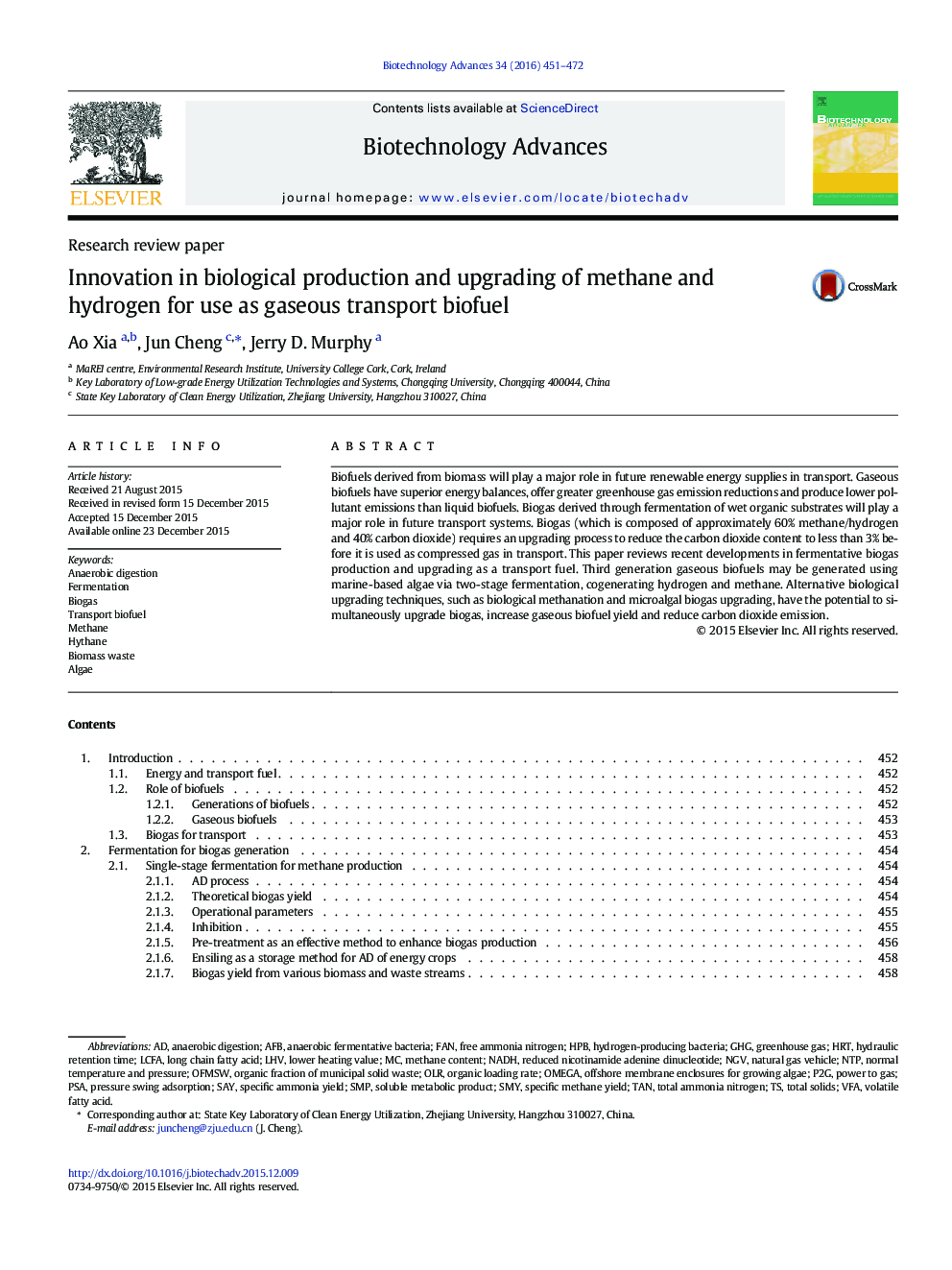| Article ID | Journal | Published Year | Pages | File Type |
|---|---|---|---|---|
| 6451201 | Biotechnology Advances | 2016 | 22 Pages |
Biofuels derived from biomass will play a major role in future renewable energy supplies in transport. Gaseous biofuels have superior energy balances, offer greater greenhouse gas emission reductions and produce lower pollutant emissions than liquid biofuels. Biogas derived through fermentation of wet organic substrates will play a major role in future transport systems. Biogas (which is composed of approximately 60% methane/hydrogen and 40% carbon dioxide) requires an upgrading process to reduce the carbon dioxide content to less than 3% before it is used as compressed gas in transport. This paper reviews recent developments in fermentative biogas production and upgrading as a transport fuel. Third generation gaseous biofuels may be generated using marine-based algae via two-stage fermentation, cogenerating hydrogen and methane. Alternative biological upgrading techniques, such as biological methanation and microalgal biogas upgrading, have the potential to simultaneously upgrade biogas, increase gaseous biofuel yield and reduce carbon dioxide emission.
